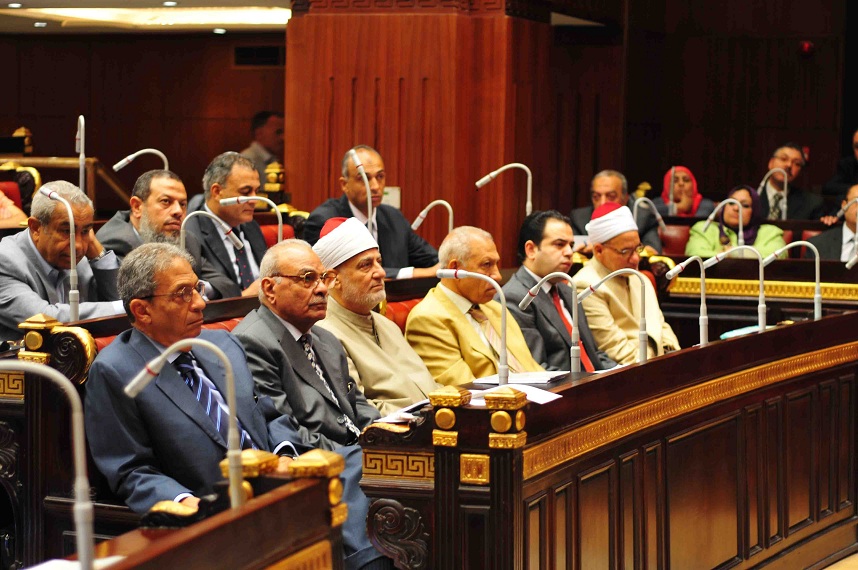I have been visiting Egypt regularly, but not because I have to or need to. Other than my roots – which can be rapidly severed once you lose your loved ones – I come here because Egypt has a certain pull: friends, the warmth of some people and the kindness of others who remind me of the good old days. Every time I return, I find changes. There are obvious ones like the airport getting more organized and cleaner with the road leading to it lined with trees and flowers, without advertisements.
Other changes I discovered little by little. Some are not so good, such as the abominable traffic, but on the bright side, the phones were functioning. Not so long ago it was common for people to ask each other if they found it easier to call Tokyo than to dial a Giza number. The ubiquitous mobile phones too have become life savers, especially if you are caught in traffic.
These improvements are great but often taken for granted, but this is not the purpose of this article.
Much as I applaud the improvements in cultural life, they recede in the background as they are shrouded in an environmental disaster. The filth surrounding us has reached such proportions that it is blotting away any image of progress.
My first shock was in my own district, Maadi.
Maadi residents used to be so proud of their neighborhood. Books, paintings and other artistic works have been published depicting life in Maadi: Our villas, gardens and trees that line the streets and alleys, providing shade during the hot summer months, and the scent of flowers filling the air during the evening breeze. The signature roundabouts were the envy of other neighborhoods in Cairo, each one more beautiful than the other. There were no ugly high-rises, or neon advertisements.
NGOs were specifically entrusted with the preservation of Maadi, working hard to encourage people to act responsibly by cleaning their pavements and trimming their trees, even on side streets.
However my latest visit, which lasted a little longer than anticipated, helped me experience some of the hardship Maadi residents face day in and day out, even though it is a fraction of what others go through.
For starters, there is no way you can walk on pavements. They’re in a terrible state, with half of them worn out and littered with potholes and stones. The fact that they’re too high to climb – especially for the elderly or those suffering from arthritis and knee problems – is another issue. And because the pavements are a problem in and of themselves, they force people to use the roads at their own risk, for car drivers have no mercy when it comes to pedestrians.
But by far the most serious problem plaguing Maadi today is the heaps of garbage on the pavements, all piled up day and night. The containers have replaced the diligent donkey-driven carts that were well regulated and, though not perfect, were an acceptable way to keep our streets more or less clean.
But “progress dictates that donkeys are incompatible with modernity, where contracted companies must do the job instead.
So I have come to hate my existence in Maadi. I open the window every day only to be greeted with the offensive sight of a big container overflowing with garbage. After the collector’s visit, the waste ends up in heaps on the ground.
When I voiced my anger about it, I was told that this is not only the case in Maadi, but everywhere else. Indeed this was true. Even next to the military hospital in Maadi, heaps of disposed material finds its way to a corner, where flies and stray dogs rummage through it. The merciless sun pierces through the polluted air to ensure it rots before bits and pieces are collected the following day.
It seems our neighborhoods are not ours anymore. They belong to an obscure power that decides on behalf of the people which houses will be torn down, which trees will be axed, which buildings can go above the storey limit allowed by law. That invisible power can change the characteristic features of what used to be an exquisite well-planned and well-kept city.
Neon billboards have even found their way to the roundabouts instead of plants. Where has our sense of aesthetics gone? Why have some of our suburbs been hijacked by those who only think of making an extra buck, even if it mean breaking all laws? Why aren’t we encouraging local home-bred initiatives that have shown perseverance and creativity in preserving the special cache of cities over the years? Why can’t we develop consultation debates on problems of our own environment to develop self-reliance and unleash creativity without stoking defensive attitudes from others, especially those in positions of power?
We have heroic NGOs trying desperately to stem the tide and preserve the environment, with the blessings of its inhabitants who participate in the monumental task of maintaining and investing in their streets and their homes.
The government cannot solve all problems, but it can encourage people whose only interest is to preserve, maintain and beautify their surroundings, by rewarding them, consulting with them and putting a halt to random actions that go against national policies. We miss our donkeys, why can’t we bring them back?

